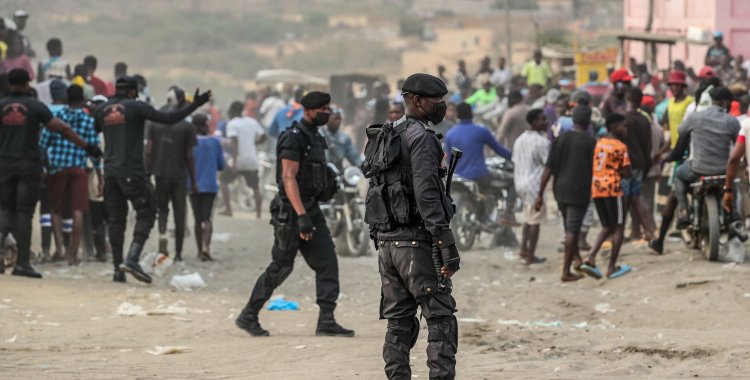"The context we are in now is one of rupture or contestation. If the actions of this moment have to be criminalized, I don't think so, although socially we should disapprove of the behavior, but I think they should not be criminalized", said the sociologist to Lusa.
Paulo Inglês was speaking to Lusa about the arrest of two young people, on Tuesday, in Luanda, for evidence of a crime of incitement to violence and an offensive message to the President, João Lourenço, and his family. Both young men appear in a video that went viral on social media.
Another man was arrested on Monday for having released an audio on social media in which he reported the death of the President.
"Here the debate is not whether what the boys did is right or wrong, of course, in a way we don't agree and it's not right, but what should be the discussion is whether what's not right is a crime", pointed.
For Paulo Inglês, Angola, which two weeks ago held its fifth general elections, contested by the opposition and which gave rise to an electoral dispute that is taking place in the Constitutional Court, "is going through a tense moment from a social and political point of view, which is fleeting way".
"We are facing a kind of crisis of institutions in which what is taken for granted is called into question and, therefore, in this time of crisis, what there is is this kind of extravasation of language, of shock", he underlined.
The sociologist continued: "This does not mean that the people, or I, agree with what the young people did, of course I am not, because there is the respect that anyone should have and deserve, regardless of whether he is the President of the Republic".
"Now, what I question is whether any form of protest against a constituted power should be criminalized. I think that is what should be debated and in this I think there may be some exaggeration", he insisted.
According to the same analyst, "there is a discussion of the border between protest and crime". Therefore, "the question is whether what is happening is a criminalization of protest".
"The problem, and I think this should be evaluated, was whether forms of protest against an ideology, or certain practices, should be criminalized", concluded Paulo Inglês.
Last week, the president of the National Electoral Commission (CNE), Manuel Pereira da Silva, released the final tabulation minutes of the August 24 general elections, which proclaimed the Popular Movement for the Liberation of Angola (MPLA) and its candidate, the outgoing President, João Lourenço, as winners with 51.17 percent of the votes, followed by the National Union for the Total Independence of Angola (UNITA) with 43.95 percent.
With these results, the MPLA elected 124 deputies and UNITA 90 deputies, almost double the 2017 elections.
The Social Renewal Party (PRS) won two seats in parliament by adding 1.14 percent of voters' votes, the same number of deputies that won the National Liberation Front of Angola (FNLA) and the Humanist Party of Angola (PHA). ), with 1.06 percent and 1.02 percent of votes respectively.
The CASA-CE coalition, the APN and the P-Njango did not obtain seats in the National Assembly, which in the 2022-2027 legislature will have 220 deputies.







